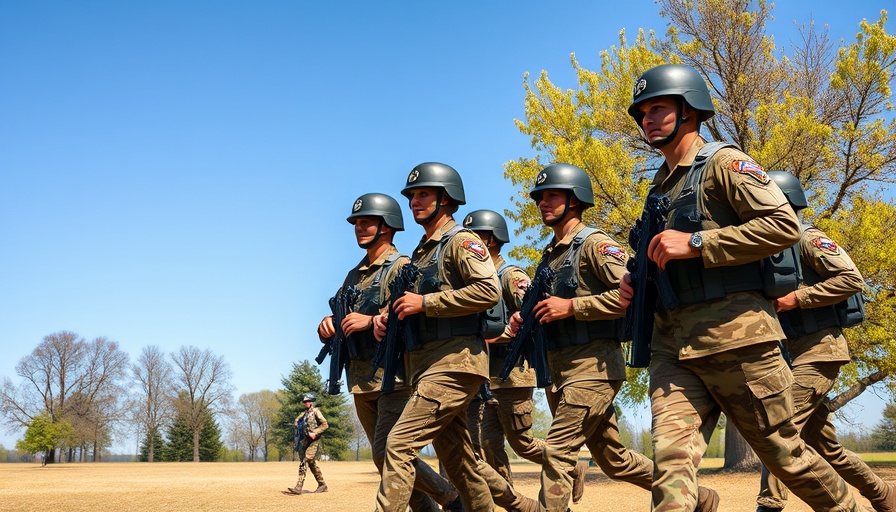
An Unexpected Turn in D.C. Crime Policy
As President Trump declared a crime emergency in Washington, D.C. this August, the city saw an unexpected uptick in gun enforcement. Approximately 150 firearms have been confiscated since the directive, a sharp contrast to the administration's previously relaxed stance on gun laws. With Law and Order becoming a rallying cry, the administration simultaneously aims to create a gap between Democratic leadership and constituents in urban areas.
Repercussions Within His Own Coalition
The crackdown has raised eyebrows among gun rights advocates who once aligned with Trump's policies. Attorney General Pam Bondi reported that more arrests and gun removals are on the rise, yet this intensified push for gun control sends conflicting signals to gun owners. Several prominent groups, including the Gun Owners of America, voiced their concerns. Luis Valdes, the Florida director of this influential lobby, expressed unease over the administration’s apparent shift. “It sends a message we don’t like,” he stressed, indicating that the aggressive tactics by the law enforcement may alienate lawful gun owners across the nation.
Historical Context: A Picture of Gun Control History
This marked enforcement approach emerges amid a broader, contentious history surrounding gun control in the U.S. For many years, gun control has essentially divided the political parties. Throughout the Trump administration, significant regulatory rollbacks on firearms have comforted Second Amendment absolutists. But as rising crime rates plague urban areas, the focus on gun enforcement has taken an entirely new direction, sparking fears among supporters of gun rights.
Future Implications: What Lies Ahead for Gun Laws?
The question many are asking now is, what will this mean for future gun laws in America? With criminality surging and an administration likely to pursue stricter measures, the impact on gun legislation remains uncertain. Experts warn that the administration's current path could create a new narrative where the enforcement against illegal firearms may inadvertently lead to stricter regulations on legal gun ownership. In D.C. specifically, public sentiment may shift toward supporting more stringent gun control as violent crime figures remain high.
Public Sentiment: Voices From the Ground
In light of rising crime rates, public perception is pivoting toward a sense of urgency surrounding safety. Many citizens in D.C. are calling for stronger controls as they look to local authorities for help navigating concerns around violence and illegal firearms. The community’s commitment to public safety mirrors a growing national conversation. This outcry could influence upcoming midterm elections, where gun policy might become a pivotal talking point.
Common Misconceptions: Breaking the Myths
Despite the ongoing discourse around guns, misconceptions around gun control often persist. Many people believe that increased gun control equates to an unarmed public, ignoring the complexities involved in balancing rights with public safety. This nuanced discussion often gets overshadowed in sensational headlines. Residents of D.C. are becoming increasingly aware that effective policies must ensure the rights of lawful gun owners while curbing the use of guns in crimes.
Next Steps: Actions You Can Take
As debates over gun control and crime rates heat up, community involvement becomes imperative. Citizens are encouraged to engage in discussions with their legislators, advocate for public safety measures, and stay informed about upcoming legislation related to gun laws. Community forums, such as town hall meetings and local forums, provide platforms for voices to be heard. With the future of gun rights and regulation hanging in the balance, every action counts.
In conclusion, the Trump administration’s current approach to gun enforcement may not only impact public safety initiatives but could also redefine the narrative surrounding gun rights in the United States, especially leading up to the 2024 elections. As crime rates continue to pose challenges, it is essential for constituents to engage in discussions that could shape the future of gun ownership in America.
 Add Element
Add Element  Add Row
Add Row 



Write A Comment